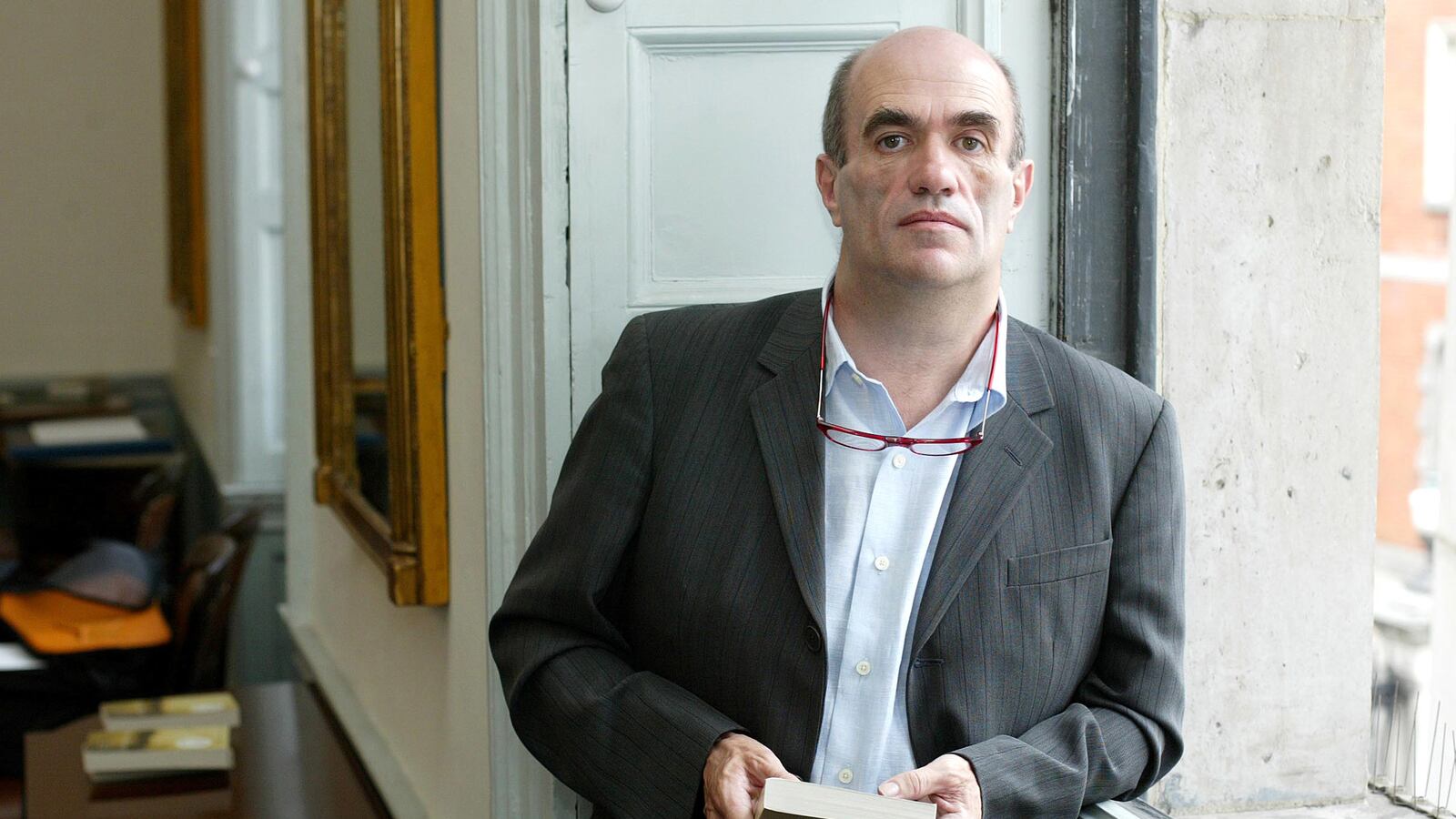In the spring of 2000 Colm Toibin wrote two first chapters. One became The Master, a fictional account of a period in the middle of Henry James’s life. The other first chapter described a new widow in a small Irish town in the ’60s who is visited each night by townspeople coming to pay their respects. One visitor, an elderly woman named Mrs. Lacey, relays an anecdote about her American son-in-law. When, after finishing The Master, Toibin returned to the first chapter about the widow, he knew he had to follow the story of Mrs. Lacey’s son-in-law, which became his novel Brooklyn. He also wrote a short story about the Irish widow’s grown son. And somewhere in there he wrote a brief novel, The Testament of Mary, that had nothing to do with the widow (although it does tells the story of Christ’s crucifixion from the point of view of his mother.) But all the while he kept returning to that first chapter, adding a scene here and a scene there, until now, more than a decade after he first wrote it, that first chapter forms the beginning of his latest novel, Nora Webster.
The book, like parts of Brooklyn as well as other Toibin novels, is set in a small Irish town in the middle of the 20th century, a time and place he is intimately familiar with from his own childhood. It is, he says, the story he has been circling his whole career—the plainest telling of what happened to him and his family after his father died while he was still a boy. The novel is receiving awe-struck reviews but, Toibin says, after spending so much time with the material, first in the living, then in the writing, he has finally shut the door on that first chapter: “I won’t get it again, those years.”
Toibin says he wrote Nora Webster “mostly from memory, but not all from memory, and I’m trying to make sure you don’t know which is which.” He is talking in his office at Columbia, where he teaches literature; the shelves are lined with books but the walls are bare of pictures. Toibin has an architecturally perfect bald head, which make his impressive eyebrows all the more entertaining to watch as he speaks. His voice is quiet, melodic, and often tinged with an undercurrent of mirth. And when he says the book is from memory, he means something different than the facts being true or the characters being based on real people. He has, he claims, the ability to remember entire scenes from his childhood verbatim—who said what, the time of day, the position of chairs around a table. The anecdote Mrs. Lacey relays? “That’s more or less word for word.” It bothered his mother, he says, that he was able to so precisely recall events that had happened a half century before, and he sees his memory as a nuisance, at times, as well: “It’s a funny thing to have, it’s not good. We should forget more things.”
One of those dictation-perfect memories is of neighbors coming to the house night after night when his father died, an “Irish wake without the body.” These visits were not of particular comfort to him or his mother, “but I think if no one had come my mother would have felt very strange.” Like the character of Donal, Nora’s older son, Toibin felt lost in the shuffle following his father’s death. He grew up, he says, “feeling what a lot of people got seemed to make them happier and better and I didn’t get any of it.” He stammered, and read and wrote a lot of poetry (mostly in secret), an avocation he changed to photography for the novel. “Poetry would be too obvious, too ‘portrait of the artist as a young nuisance’.” Like Donal, he requested to go to boarding school to escape his homelife; also like Donal, he was initially miserable there.
In the short story “Donal Webster,” which he wrote several years before finishing Nora Webster, Donal, now a teacher living in the States, returns to Ireland for the death of his mother. As his mother lies dying, he realizes “that she had never wanted me very much, and that she was not going to be able to rectify that in the few days she had left in the world.” Toibin says the story was written in a “state of pain and rage,” and that he’s softened his tone and outlook for its prelude. He told himself, in writing Nora, “don’t ruin the book by getting angry or blaming, try to see everyone’s side, and soften yourself.”
The atmosphere of the novel is certainly soft—Toibin describes it as “south eastern Ireland, candlelight, bits of rain in the winter but not much, very calm sea, very calm manners, most people slightly watchful but not in a state of rage.” But there’s nothing soft about Nora herself. She is a marvelously complicated, funny, infuriating, and in some ways deeply admirable character. Read a certain way, she is a proto-feminist role model: a woman who supports her family, demands dignity and respect, is on the right side of political history, and even manages to make a Woolfian room of her own for her love of music, refusing to be subsumed or effaced by her maternal responsibilities. Read another way, she is a horrible mother, an uptight snob, and a bit of a shrew. “You could find her really monstrous,” Toibin acknowledges. But, he says, “I’m not involved in creating images of pure goodness for people to savor and be comforted by. I don’t think fiction is for that purpose.”
Unlike Brooklyn, which has a significant plot that hangs on secrets and a Jamesian, life-altering coincidence, the plot of Nora Webster consists simply of Nora’s gradual evolution from grief-struck paralysis to quietly contented self-sufficiency. Yet somehow the drama of the tiny moments of her utterly ordinary life keep you turning pages compulsively. Early in the book, she takes her two sons to Dublin for the day. She loses them briefly in a department store, but finds them a few moments later, and the incident is never mentioned again. Later, her older daughter goes missing while there is unrest in the North, but the daughter turns up safe a few days later, unaware anyone was looking for her. Rather, the novel’s big emotional epiphany comes in a half-sentence, when Donal tells Nora how difficult it’s been for him to return to the school where his father taught before he died. “It’s a huge moment,” Toibin says. “They’ve been living in their silences and they’ll never come out of them, because to do that would be to actually confront the level of emotion” under the surface of their mild, placid lives.
While the novel pays a diaristic level of attention to domestic affairs, the author says his aim was not to write a realistic novel about daily life. “I’m not interested in the sentence as something that conveys information, but the sentence as something that has emotion buried within it. Instead of telling a story, I’m working towards hitting the reader’s emotional nervous system using rhythm. You’ve got to control the emotion and release it, control it and release.”
A moment of release comes near the end of the story, when pragmatic, down-to-earth Nora has an encounter with her dead husband’s ghost, and finally feels the full, somatic effect of her own despair. It is the crux of the novel, the scene that elevates it above a carefully shaded pencil study in repression and grief into a full spectrum tour de force of human feeling. To write it, Toibin went back to his hometown in Ireland, put on the music that plays in the scene, and wrote it in longhand, knowing he wouldn’t change much in typing it up. “I knew as I was writing it, you can’t revise this,” he says. “I worked all day Saturday and what I had as a reward was I could go swimming.” But when he’d finished it had started to rain. He walked down to the beach anyway, in the rain, and went for a long swim. “I stayed in the water and I thought, whatever I’ve done in my life, I’ve done that.” It is the final chapter in the book.






